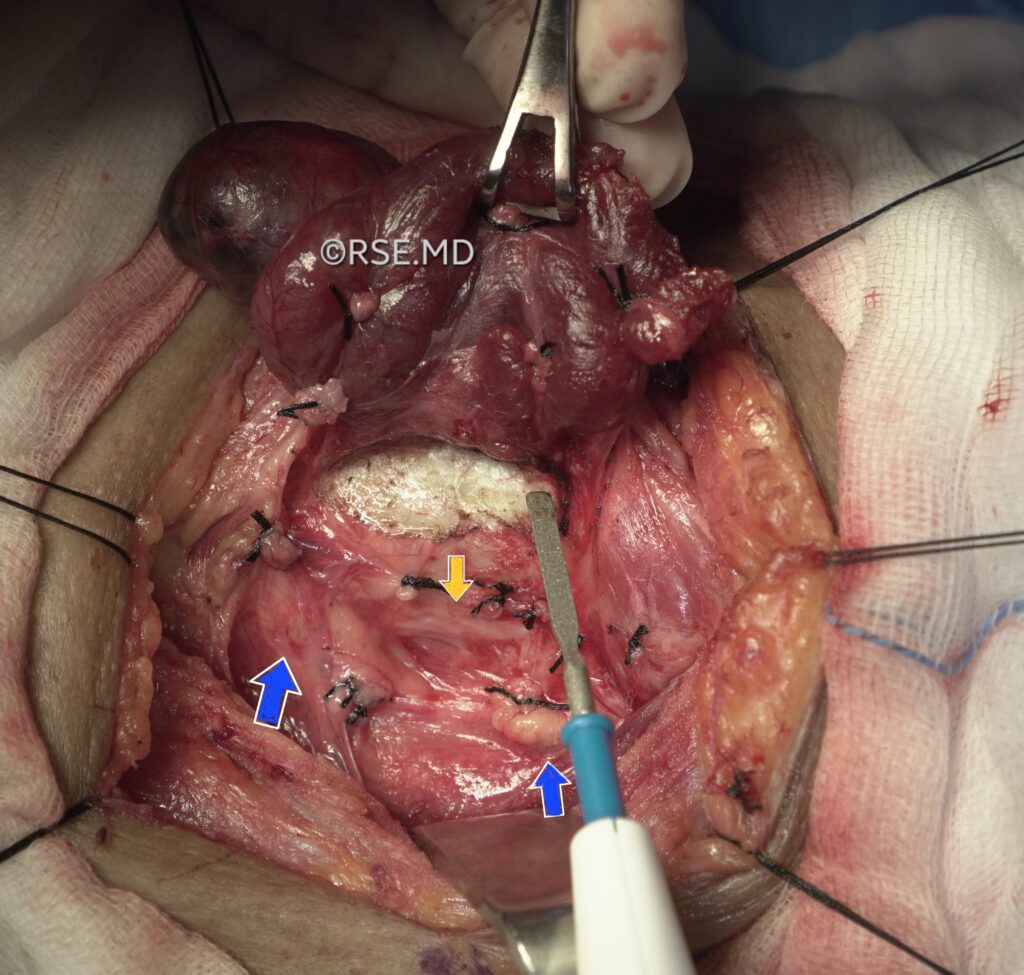Thyroid cancer is a concerning diagnosis, but advancements in medical science have led to several effective treatment options. ENT doctors now use a combination of surgery, radioactive iodine therapy, radiotherapy, chemotherapy, and immunotherapy to combat this disease, significantly improving patient outcomes.
Furthermore, the advent of precision medicine is revolutionizing cancer care by allowing doctors to tailor treatments to each patient’s unique genetic makeup. This personalized approach offers new hope, making thyroid cancer treatment more effective and providing patients with a brighter outlook.
Surgery for Thyroid Cancer
Surgery is often the primary treatment for thyroid cancer, involving the removal of part or all of the thyroid gland. This procedure, performed by an ENT doctor near you, aims to eliminate cancerous tissue and prevent the spread of the disease. Depending on the extent of the cancer, your neck surgeon may perform a lobectomy (removal of one lobe), a total thyroidectomy (removal of the entire gland), or a neck dissection to remove lymph nodes.

Radioactive Iodine for Thyroid Cancer
Radioactive iodine therapy, also known as radioiodine therapy, is a targeted treatment used after surgery to destroy any remaining thyroid cancer cells. Patients ingest a dose of radioactive iodine, which is absorbed by thyroid cells, including cancerous ones. The emitted radiation then selectively kills these cells while sparing surrounding healthy tissue. ENT doctors closely monitor patients during this treatment to ensure its effectiveness and safety.
Radiotherapy for Thyroid Cancer
Radiotherapy involves the use of high-energy radiation beams to target and destroy cancer cells. While less commonly used than surgery or radioactive iodine therapy for thyroid cancer, it may be recommended in certain cases. External beam radiotherapy delivers radiation from outside the body, precisely targeting the tumor site. Internal radiotherapy, known as brachytherapy, involves placing radioactive material directly into or near the tumor. ENT doctors collaborate with radiation oncologists to determine the most suitable radiotherapy approach for each patient.
Chemotherapy for Thyroid Cancer

Chemotherapy, though not typically the first-line treatment for thyroid cancer, may be used in advanced or metastatic cases. This systemic treatment involves the use of powerful medications to kill cancer cells or stop their growth. Chemotherapy drugs are administered orally or intravenously and circulate throughout the body, targeting cancer cells wherever they may be. ENT doctors often work alongside medical oncologists to manage chemotherapy treatment and monitor its effects on thyroid cancer.
Immunotherapy for Thyroid Cancer
Immunotherapy harnesses the body’s immune system to recognize and attack cancer cells. This innovative approach has shown promising results in treating certain types of thyroid cancer, particularly those that are advanced or recurrent. Immunotherapy drugs, such as immune checkpoint inhibitors, help activate the immune response against cancer cells, enhancing the body’s ability to fight the disease. ENT doctors collaborate with oncologists to determine if immunotherapy is a suitable option for patients with thyroid cancer and to monitor their response to treatment.
Thyroid cancer treatment options have significantly evolved, providing patients with hope and effective strategies to combat the disease. When seeking treatment for thyroid cancer, it’s essential to consult with an experienced ENT doctor who specializes in thyroid conditions. Staying informed of the treatment options and working closely with your ENT doctor and medical team enables individuals facing thyroid cancer to make informed decisions and embark on their journey towards recovery.
Experience expert ENT surgical care tailored to your needs.
Book now to schedule your appointment with a skilled ENT surgeon near you and take the first step towards a healthier you.
Your well-being is our top priority.

